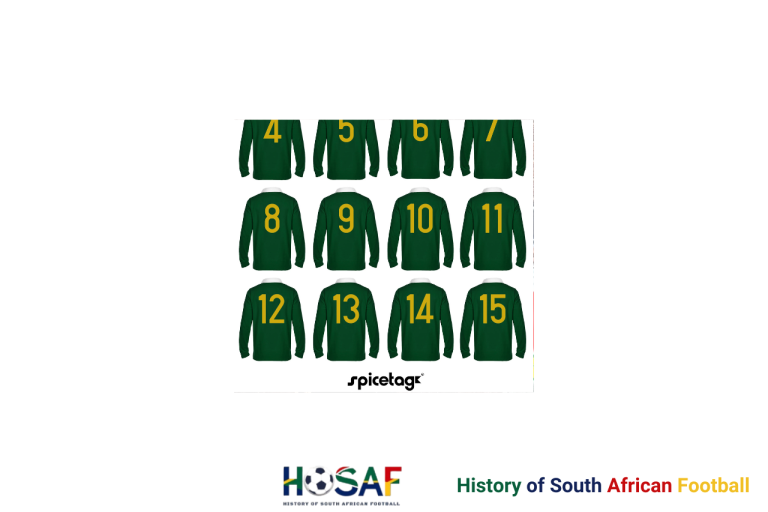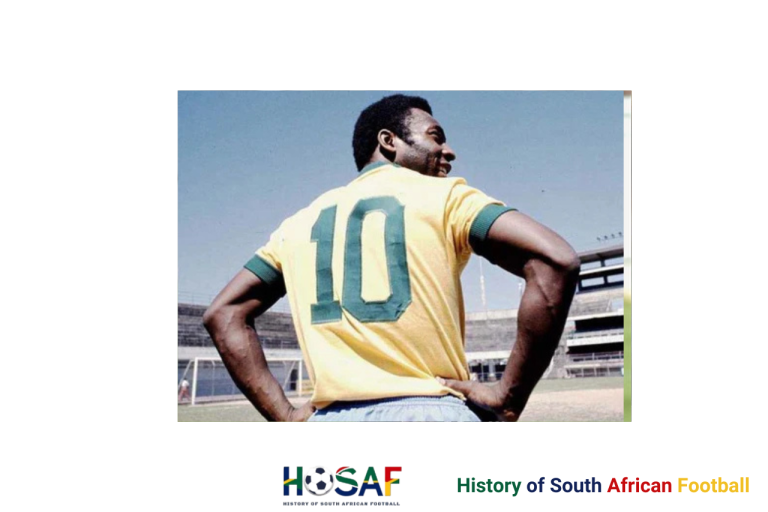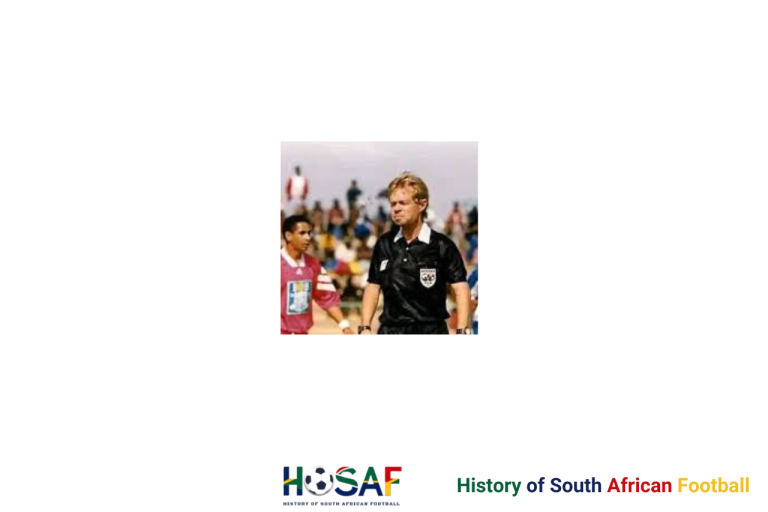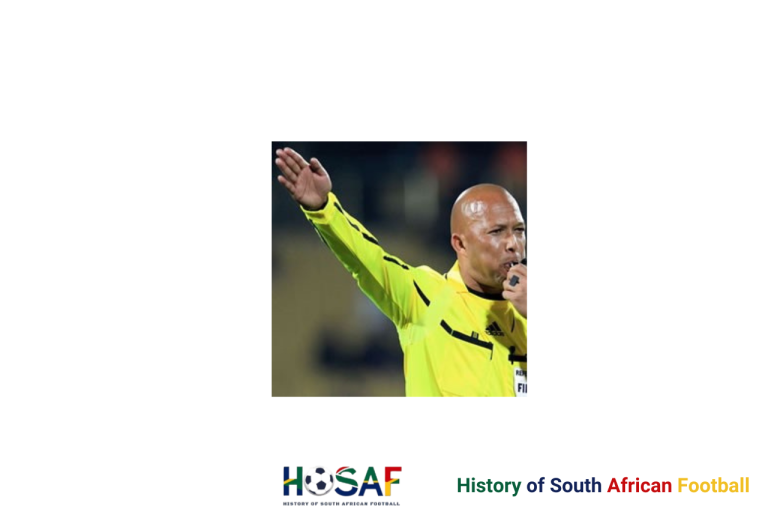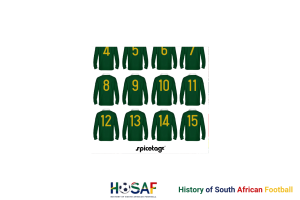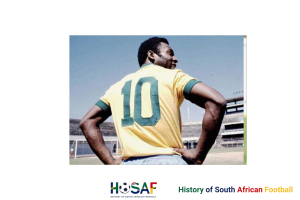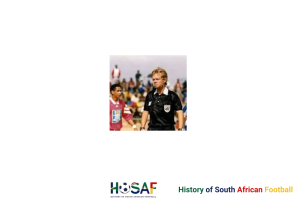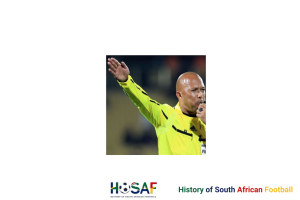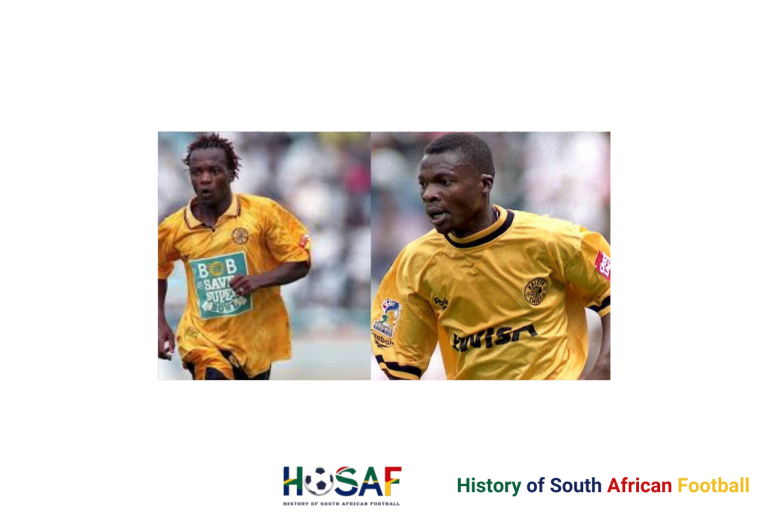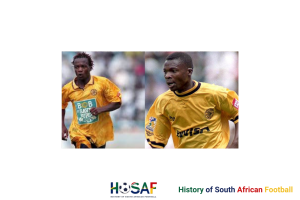Full Name: Dumitru Teodorescu
Known As: Ted Dumitru
Date of Birth: 2 September 1939
Place of Birth: Bucharest, Romania
Date of Death: 26 May 2016
Place of Death: Johannesburg, South Africa
Nationality: Romanian-American (later a South African resident)
🧒 Early Life and Beginnings
Ted Dumitru was born in Bucharest, Romania, during a tumultuous time in European history. As a young man, he immersed himself in football—first as a player, then increasingly as a coach. While he trained as a player in Romania, his professional playing career was relatively short, reportedly curtailed by injury. Instead, he shifted his focus to coaching at an early age, which would become his life’s work.
He studied physical education and coaching in Romania, and he quickly built a reputation for his deep understanding of tactics and player development, even as a young coach.

🌍 International Coaching Journey
Early Coaching in Europe
In the 1960s and early 1970s, Dumitru started his professional coaching career in Romania, but due to the political climate and his ambition to work in football internationally, he left the country. He moved to Turkey and later to the United States, where he began to establish himself further.
Coaching in the USA
In the 1970s, Dumitru coached in the North American Soccer League (NASL), an early attempt to popularize soccer in the U.S. He was associated with teams like the Rochester Lancers and New York Apollo. He also became involved with coaching education in the U.S., working on development programs and contributing to the training of local coaches.

During this time, Dumitru became a naturalized U.S. citizen.
🇿🇦 Arrival and Influence in South Africa
Ted Dumitru arrived in South Africa in the early 1980s, and this move would define his legacy in football history.
🏆 Club Coaching Success
Kaizer Chiefs (Multiple Stints)
One of the most significant chapters of Dumitru’s coaching career was his time with Kaizer Chiefs, one of South Africa’s most popular football clubs. He served multiple terms as head coach, particularly in the 1980s and again in the early 2000s.
- Trophies Won:
- Multiple league titles
- Cups, including the BP Top 8, Telkom Knockout, and Coca-Cola Cup
- He led Chiefs to back-to-back PSL titles in 2003–04 and 2004–05

Photo taken from snl24
Mamelodi Sundowns
Dumitru also coached Mamelodi Sundowns, another of South Africa’s top teams. During his time there in the late 1990s, he helped mold them into a more dominant force in the league and laid the groundwork for their rise as a continental power.

🇿🇦 National Team Coaching
Ted Dumitru served as head coach of the South African national team (Bafana Bafana) from 2005 to 2006.
- His tenure was controversial and challenging. He took charge during a transition period and focused on introducing younger, less experienced players.
- South Africa had a disappointing showing at the 2006 Africa Cup of Nations (AFCON) in Egypt, where the team failed to score a single goal.
- Despite the poor results, Dumitru remained respected for his dedication to player development.

👨🏫 Contribution to Youth and Coaching Development
Arguably, Ted Dumitru’s most enduring legacy lies in youth development and coaching education in South Africa.
- He founded the “Chibo” School of Excellence, a football development initiative.
- He was a passionate advocate for grassroots football and was instrumental in setting up coaching clinics and training thousands of youth coaches across the country.
- Dumitru promoted a “scientific approach” to training and was obsessed with developing a unique South African football identity rooted in local flair and skill.

He collaborated with the South African Football Association (SAFA) and contributed to national development plans. His ideas helped shape the SAFA Coaching Education System.
📚 Author and Thinker
Dumitru was also a prolific writer and thinker about the game. Some of his works include:
- “Maximal Training” – a coaching manual based on performance optimization.
- He also co-authored documents on football philosophy and tactical development, tailored for African football contexts.
He believed in empowering local coaches with deep tactical understanding rather than importing European methods wholesale.

⚽ Football Philosophy
- Player-Centered: He believed in nurturing intelligent, creative players.
- African Flair: He felt African footballers had a unique flair that should be embraced, not suppressed.
- Long-Term Development: Dumitru was not a short-term results-oriented coach. He cared more about building systems that would outlast his own tenure.

🕊️ Death and Legacy
Ted Dumitru passed away on 26 May 2016, at the age of 76. He collapsed at a shopping mall in Johannesburg due to a suspected heart attack.
His death was mourned deeply across the South African football community. Many tributes poured in, celebrating his contribution to the game not only as a successful coach but also as a mentor and educator.

🏅 Legacy Highlights
- Over 40 years in coaching, including at the top level in multiple countries.
- 4x South African Premier Soccer League champion
- Pioneered coaching education and youth development programs in Africa.
- Coached more than a dozen clubs and national teams during his lifetime.
- Mentored many local coaches and was seen as a father figure in South African football.
📅 Ted Dumitru – Coaching Timeline
Here’s a chronological overview of his coaching journey across the world:
1960s – Early Coaching in Romania
- Started coaching in his native Romania in his 20s.
- Studied coaching methodology and physical education.
- Developed early concepts of “intelligent football” and “scientific training,” even before they were fashionable.
1970s – Move to Turkey and the USA
- Turkey: Brief coaching stint with clubs in Turkey; exact records are sparse.
Istanbul.

- USA:
- Coached in the North American Soccer League (NASL).
- Managed Rochester Lancers and later New York Apollo.
- Gained exposure to multi-cultural football environments.
- Became involved in coach education and youth development programs.
Early 1980s – Arrival in South Africa
- Initially came to Swaziland (now Eswatini) for a coaching assignment.
- Moved to South Africa in 1980–81, just before the height of the country’s transformation through sport.
- Began building his legacy in the country’s footballing infrastructure.
1985–1988 – First Stint at Kaizer Chiefs
- Led Kaizer Chiefs during the NSL (National Soccer League) era.
- Won multiple trophies including league and cup doubles.
- Introduced structured training and tactical awareness.
Late 1980s – Return to the U.S. and Europe
- Brief return to U.S./Europe for further work on coach education programs.
- Gained deeper insight into global football development models.
1990s – Return to South Africa
- Continued club coaching in South Africa, including work with:
- Kaizer Chiefs (again)
- Mamelodi Sundowns
- Orlando Pirates (brief association)
1997–1999 – Mamelodi Sundowns
- Built a dominant team with a tactical, skill-based identity.
- Helped modernize their football structure.
- Won league titles and pushed them into continental competition.
2003–2005 – Return to Kaizer Chiefs
- Golden period: Won back-to-back PSL titles.
- Focused on combining youth with experienced players.
2005–2006 – Bafana Bafana Head Coach
- Took charge of South Africa’s national team.
- Advocated for local talent and introduced new, younger players.
- Team struggled at the 2006 AFCON, but Dumitru’s emphasis was long-term growth, not immediate success.

Post-2006 – Coaching Education and Mentorship
- Worked with SAFA (South African Football Association).
- Ran coaching seminars, youth clinics, and academic programs.
- Helped draft national youth development strategies and curricula.

Until 2016 – Legacy Projects
- Continued mentoring local coaches and running programs.
- Passed away on 26 May 2016, after collapsing at Eastgate Mall in Johannesburg.
🌟 Notable Players Mentored or Influenced
Ted Dumitru worked with or helped develop dozens of talented players—many became household names in South Africa. Here are some key examples:
⭐ Doctor Khumalo
- A midfield maestro for Kaizer Chiefs and Bafana Bafana.
- Dumitru helped polish his tactical discipline and playmaking skills.

⭐ Thabo Mooki
- Long-serving Chiefs midfielder.
- Refined under Dumitru’s structured training and intelligent football ideology.

⭐ Jabu “Shuffle” Pule (now Mahlangu)
- Dumitru supported his development and promoted his unique flair.

⭐ David Radebe
- Forward known for pace and movement.
- Dumitru worked on his off-the-ball intelligence and finishing.

⭐ Teko Modise (early stages)
- Though Modise blossomed fully after Dumitru’s national stint, he was an early admirer and supporter of his talent.

⚽ Local Coaching Influence
Dumitru mentored or directly influenced prominent local coaches like:
- Pitso Mosimane – Now a renowned African coach.

- Steve Komphela

- Farouk Khan

- Zipho Dlangalala

Many of these individuals have acknowledged Dumitru as a father figure and mentor.
📘 Key Writings and Football Philosophy
Dumitru was not just a coach—he was a philosopher of the game. Here are some of his most notable works and ideas:
1. “Maximal Training” (Book/Manual)
- A coaching manual focused on physical, technical, and tactical optimization.
- Advocated for training intensity aligned with match demands.
- Promoted position-specific conditioning, now widely used in modern coaching.
2. African Football Identity Papers
- Co-authored several whitepapers and coaching guides with SAFA.
- Argued for an African-centric model of player development.
- Believed African players should embrace their natural flair, rhythm, and creativity, not try to mimic European systems entirely.
3. Youth Football Development Framework
- Helped design youth academies and grassroots systems in SAFA’s post-2000 development plan.
- Introduced age-specific coaching principles and progressive skill modules.
- Supported the “Chibo Model”, which involved:
- Technical mastery
- Tactical awareness
- Emotional development
- Cultural context integration
4. Football Philosophy: “Intelligent Football”
- Players should be trained to:
- Read the game
- Make decisions under pressure
- Understand spatial dynamics
- Believed football intelligence could be taught, not just innate.
🏁 In Summary
Ted Dumitru wasn’t just a coach—he was a game-changer.
- Over 4 decades of coaching across Europe, the USA, and Africa.
- Built a football legacy through Kaizer Chiefs, Mamelodi Sundowns, and Bafana Bafana.
- Pioneered African youth development models.
- Mentored many of South Africa’s top players and coaches.
- Authored important coaching materials still referenced today.
His ideas live on in South African football fields, coaching courses, and in the careers of the players and coaches he mentored.



